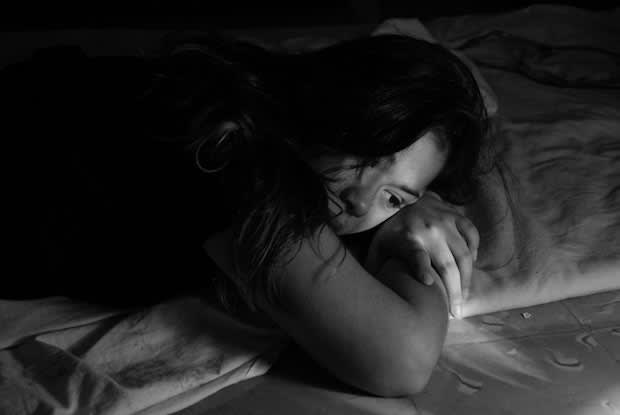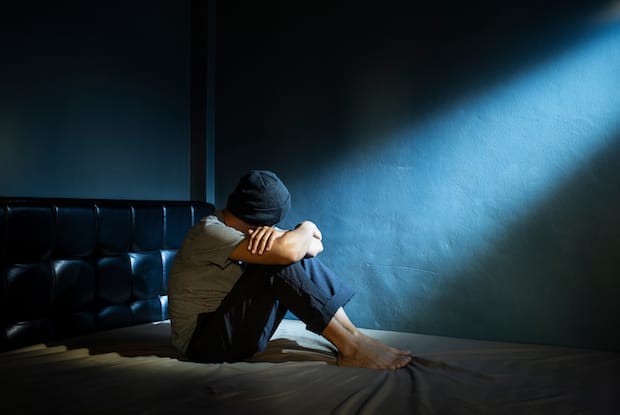Table of Contents
Several different types of depression can affect a person. Some of them come and go with difficult situations, while others may last a lifetime. In major depression (clinical depression), psychotic depression, and bipolar disorder, a person often requires medical treatment to maintain a healthy and productive life. Each of these conditions has its specific symptoms and treatments. Still, doctors will often prescribe antidepressants to improve your condition, including Paxil (paroxetine), Effexor XR, Wellbutrin XL (bupropion XL), or Trintellix (vortioxetine). Read on to learn more about major and psychotic depression, along with bipolar disorder. [1]
Major Depression
Major depression, also known as clinical depression, is a severe mental health condition. It is not the same as depression caused by a loved one's death, thyroid disorder, or other medical condition. Those with clinical depression often have a family history of the disease or an imbalance of chemicals in the brain. Hormones like serotonin and dopamine contribute to feelings of happiness, and those with major depression may be lacking some of these key hormones. [2]
Major depression often occurs in episodes. Around 16.2 million adults in the United States have had at least one major depressive episode in a given year. [3] These episodes can be triggered by a stressful life event but can occur for no reason. Major depression is more than just a bad day or temporary sadness. This type lasts for much longer, often months or even years. Clinical depression is typically a long mental health battle for some people, and long-term treatment is often required. [2] Because clinical depression goes on for long periods, many people may not realize they are experiencing depression and tend to ignore symptoms after a while. Depressive symptoms can vary greatly from person to person. It is essential to be aware of any changes in your personality so that depression can be identified. A proper diagnosis is necessary because those with clinical depression are more likely to have alcohol and substance abuse problems. Some common symptoms include: Psychotic depression is a form of major depression. Those who develop psychotic depression have a severe form of depression that involves hallucinations or delusions (psychosis). These symptoms can involve hearing voices that tell a person that they are useless or worthless. They may also experience intense feelings of failure. These breaks from reality can severely impact your everyday life and often lead to hospitalizations. Around one in four people admitted to the hospital for depression have psychotic depression. [5] Symptoms of psychosis are often associated with other disorders like schizophrenia. The delusions and hallucinations may be similar, but psychotic depression has delusions that have consistent themes of depression. Schizophrenia delusions are often more bizarre and have few connections to any emotional state. Psychotic disorders are often genetically inherited from a close family member. Other than genetics, researchers have found there is no identifiable risk factor for psychosis. [6] Psychotic depression can be difficult to diagnose because some people are humiliated by their thoughts and voices in their heads. They may stay quiet about these feelings, but this is a dangerous thing to do. Those with this form of mental illness need to seek help because one episode of psychotic depression significantly increases your chance of bipolar disorder, mania, and suicide. [5] The symptoms of psychotic depression are similar to those of clinical depression but include a few differences. Common symptoms include: This mental illness severely impacts a person's mood. Those with bipolar disorder have episodes of depression as well as mania. Mania is characterized by an unusually high mood, leading people to feel unrealistically confident, happy, or powerful. Hypomania may also occur, which is a milder form of mania. This energetic state can lead people to sleep less and participate in risky activities they wouldn’t normally do. The main types of bipolar disorders include: Bipolar I disorder involves one manic episode followed by a major depressive episode. Psychosis, or a break from reality, may occur in this disorder. Bipolar II disorder involves one major depressive episode and one hypomanic episode, but never a manic episode. Cyclothymic disorder involves at least two years of hypomania and depressive episodes, but symptoms are often less severe than clinical depression. Other types: Bipolar symptoms may be induced by alcohol and substance abuse or other medical conditions like Cushing’s disease, stroke, and multiple sclerosis.[7] Bipolar can be difficult to diagnose because it has periods of wellness between depression and mania. The frequency between these episodes varies from person to person. Most people do not switch back and forth quickly. Some may experience many episodes of depression or mania, while others only have a few in their lifetime. Like many forms of depression, many people push these feelings down and think they will go away over time. This is not the case of bipolar disorder. Bipolar is a real illness that requires treatment, so make sure to see a doctor if you notice any symptoms that seem out of the ordinary. Bipolar can occur at any age but is typically diagnosed in the teenage years or early 20s. [1] There are four main types of bipolar and related disorders. All can severely impact your life and involve noticeable mood swings that may affect your relationships and work life. General symptoms of mania and hypomania can include: General symptoms of a major depressive episode can include: Diagnosing these mental health conditions can take time because of their overlapping symptoms. In the case of major depression and bipolar disorder, a patient has to be open with their symptoms so doctors can give a proper diagnosis. Once symptoms are identified, patients will usually undergo a psychiatric assessment to talk to a psychiatrist about your thoughts, feelings, and behavioral patterns. Psychotic depression is often diagnosed when a person is in the hospital after a psychotic episode. [7] Antidepressants are commonly used for all three types of these conditions. There are several different types of these medications, but all of them work to improve your mood. Some of these drugs work to balance the chemicals in your brain and prevent serotonin and norepinephrine (feel-good chemicals) from being reabsorbed in the brain. Some commonly prescribed antidepressants include Paxil (paroxetine), Effexor XR, Wellbutrin XL (bupropion XL), or Trintellix (vortioxetine). If you are suffering from psychotic depression and bipolar 1 disorder, you may be prescribed antipsychotic drugs like Abilify (aripiprazole). With the help of antipsychotics, disorders like bipolar 1 and psychotic depression are incredibly treatable. Along with the use of medications, doctors will often recommend additional treatment options like therapy. Therapy allows a person to discuss their fears and thoughts with a trained professional. A therapist can help you identify unhealthy behaviors and provide you with new coping mechanisms for everyday life. [5] The content in this article is intended for informational purposes only. This website does not provide medical advice. In all circumstances, you should always seek the advice of your physician and/or other qualified health professionals(s) for drug, medical condition, or treatment advice. The content provided on this website is not a substitute for professional medical advice, diagnosis or treatment.
a. Symptoms
Psychotic Depression

a. Symptoms
Bipolar Disorder

a. Symptoms
Diagnosis and Treatment
